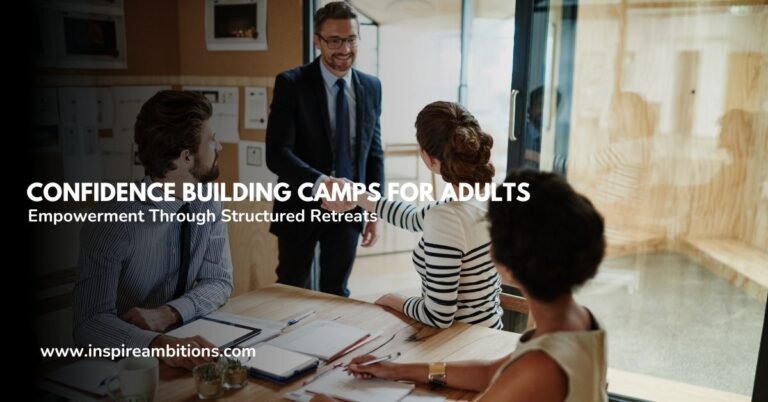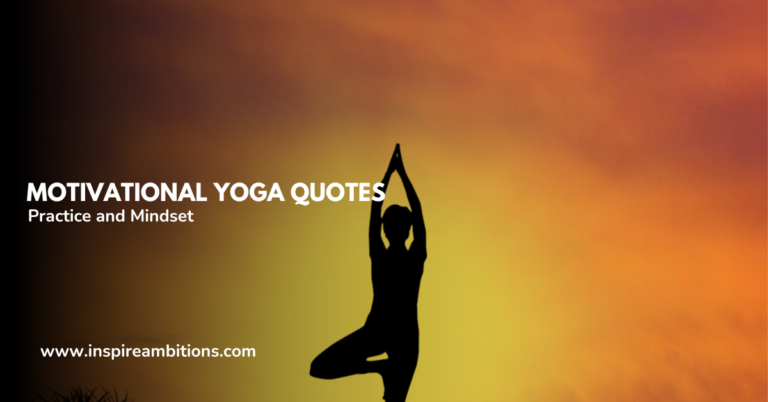Лагеря повышения самооценки для молодежи – повышение уверенности посредством приключений на свежем воздухе

“Believe you can, and you’re halfway there,” Theodore Roosevelt once said. The journey to self-belief, however, isn’t always a solitary one, especially for young adults grappling with self-esteem issues. Self-esteem camps have emerged as powerful enablers, providing a supportive environment where young adults can learn to trust their abilities and progress toward confidence.
Unlike traditional academic settings, these camps focus on личное развитие through activities designed to build self-assurance, foster resilience, and encourage positive social interactions.
Self-esteem is the bedrock upon which young adults can build a life of possibilities and achievements. A sturdy sense of self can improve relationships, stress management, and success in various pursuits.
For this reason, choosing the right self-esteem camp is crucial. Such camps typically incorporate individual and group activities, skill-building sessions, and emotional support from peers and counsellors alike. The goal is to leave with memories and tangible improvements in self-view and confidence that echo into all corners of a participant’s life.
Self-Esteem Camps for Young Adults – Key Takeaways
- Self-esteem camps offer targeted personal development for young adults.
- These camps provide a mix of activities that foster individual growth and group cohesion.
- Selecting the appropriate camp is vital for achieving lasting confidence gains.
Understanding Self-Esteem in Young Adults

Self-esteem forms the backbone of a young adult’s personal development and well-being journey. It shapes their interactions, their career paths, and their mental health. In this section, we explore the intricacy of self-esteem within young adults.
The Role of Self-Esteem in Personal Development
Личное развитие is closely tied to self-esteem as it influences your belief in your ability to succeed. With healthy self-esteem, you are more likely to set meaningful goals и pursue them with confidence. Consider self-esteem as your inner cheerleader; when it’s strong, you’re empowered to challenge yourself and grow.
Health Issues and Mental Health Challenges
Self-esteem doesn’t exist in a vacuum—it can be deeply affected by various health issues и душевное здоровье conditions. An individual with persistent low self-esteem may be more susceptible to depression, anxiety, and stress. It’s essential to recognize these emotional flagposts and understand that a decline in mental health can be a sign to seek support.
The Impact of Peers and Relationships
Your peers and the quality of relationships you maintain profoundly affect your self-esteem. Constructive friendships and supportive relationships can boost your уверенность and reinforce your self-worth. Conversely, toxic or dysfunctional relationships can erode your self-esteem, highlighting that the company you keep can be a significant building block or a stumbling block in your sense of self.
Components of Effective Self-Esteem Camps

When young adults attend self-esteem camps, they’re not only looking for fun—they want to grow. Effective camps share standard components that ensure participants leave with invaluable tools for personal development.
Structured Programs and Activities
Programs and activities at self-esteem camps should be carefully designed with clear objectives that cater to личностный рост. А структурированный подход ensures that each activity, whether a team-building challenge or a creative workshop, contributes to developing навыки такой как доверять, устойчивость, and a sense of сообщество.
- Examples of Structured Programs:
- Team-building exercises
- Problem-solving challenges
- Confidence-building activities
Skills Development and Life Coaching
Effective self-esteem camps offer skills development и life coaching to help you overcome obstacles. This includes learning practical инструменты to boost confidence and устойчивость. Through workshops and one-on-one coaching sessions, you’ll develop навыки crucial for navigating the complexities of adulthood.
- Key Focus Areas for Life Coaching:
- Personal goal setting
- Developing healthy coping strategies
- Building emotional intelligence
The Importance of a Supportive Environment
А supportive environment is the cornerstone of a successful self-esteem camp. It creates a safe space where доверять flourishes, and individuals feel empowered to step out of their comfort zones. The sense of сообщество and shared experiences fosters personal connections that can lead to lifelong friendships and support networks.
- Psychological Safety Elements:
- Non-judgmental staff and peers
- Encouragement and positive reinforcement
- An atmosphere that welcomes vulnerability
3 Key Benefits of Joining Self-Esteem Camps for Growth and Connection
Self-esteem camps offer a unique opportunity to take a break from daily life and cultivate personal growth and well-being. Participants can gain newfound уверенность, forge lasting relationships, and learn valuable life skills through various activities and programs.
Building Confidence and Social Skills
At self-esteem camps, a core aim is to bolster your self-assurance. Here, you’ll be encouraged to step out of your comfort zone and try new things, which can significantly boost уверенность. The camp environment is designed to support this personal growth with challenging and fun activities, helping to enhance your навыки общения through teamwork and communication exercises.
Creating Healthy Relationships and Community
The sense of сообщество at self-esteem camps fosters доверять and collaboration among participants. As you engage in group activities, you’ll develop healthy relationships with peers and learn to value community spirit. This experience can help you create deep connections that may extend far beyond the camp setting, teaching you the importance of support networks for positive life changes.
Overcoming Fear and Building Resilience
Facing and overcoming obstacles is a crucial aspect of self-esteem camps. These challenges are designed to help you confront and conquer your fears, thereby building resilience. Each achievement serves as a stepping stone, transforming how you perceive and tackle hurdles in everyday life. This newfound strength can empower you to navigate life’s ups and downs with more poise and determination.
Choosing the Right Camp for Young Adults
Selecting the optimal self-esteem camp for young adults involves carefully considering several crucial factors. The goal is for young adults to emerge from the camp experience with enhanced self-esteem, positive self-image, and life skills that can spur transformational growth.
Evaluating Camp Programs and Staff Credentials
Examine the programs and their relevance to your goals when reviewing potential campс. You’ll want a camp with various self-discovery and identity-formation activities. Ensure the camp is staffed by qualified professionals such as licensed therapists и psychologists, signalling the camp’s credibility.
Например, Camp Pocono Trails focuses explicitly on building healthy habits and self-esteem, facilitated by experienced staff.
Ensuring Safety and Positive Experience
Безопасность is paramount. Research the camp’s safety protocols and ensure they have a solid track record. A camp committed to creating a safe and positive experience will discuss its procedures openly, and you can often find feedback from previous participants’ experiences. An exciting camp program is essential, but it should never compromise on safety.
Considering Long-Term Impact and Outcomes
The ultimate value of a self-esteem camp lies in its long-term outcomes. Look for programs that offer a corrective experience—one that provides young adults with ongoing support and practical tools for life beyond the camp.
Anasazi Wilderness Therapy Program advocates life skills development, indicating their dedication to enduring positive outcomes. Seek out testimonials or case studies that provide evidence of transformative results, as these speak volumes about the real-world impact a camp can offer.







